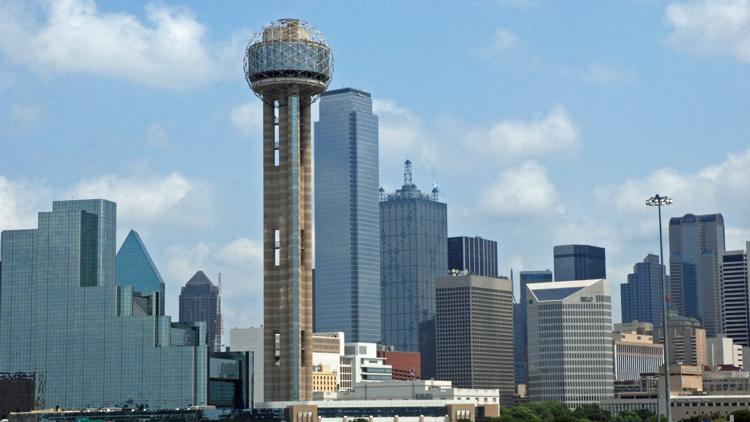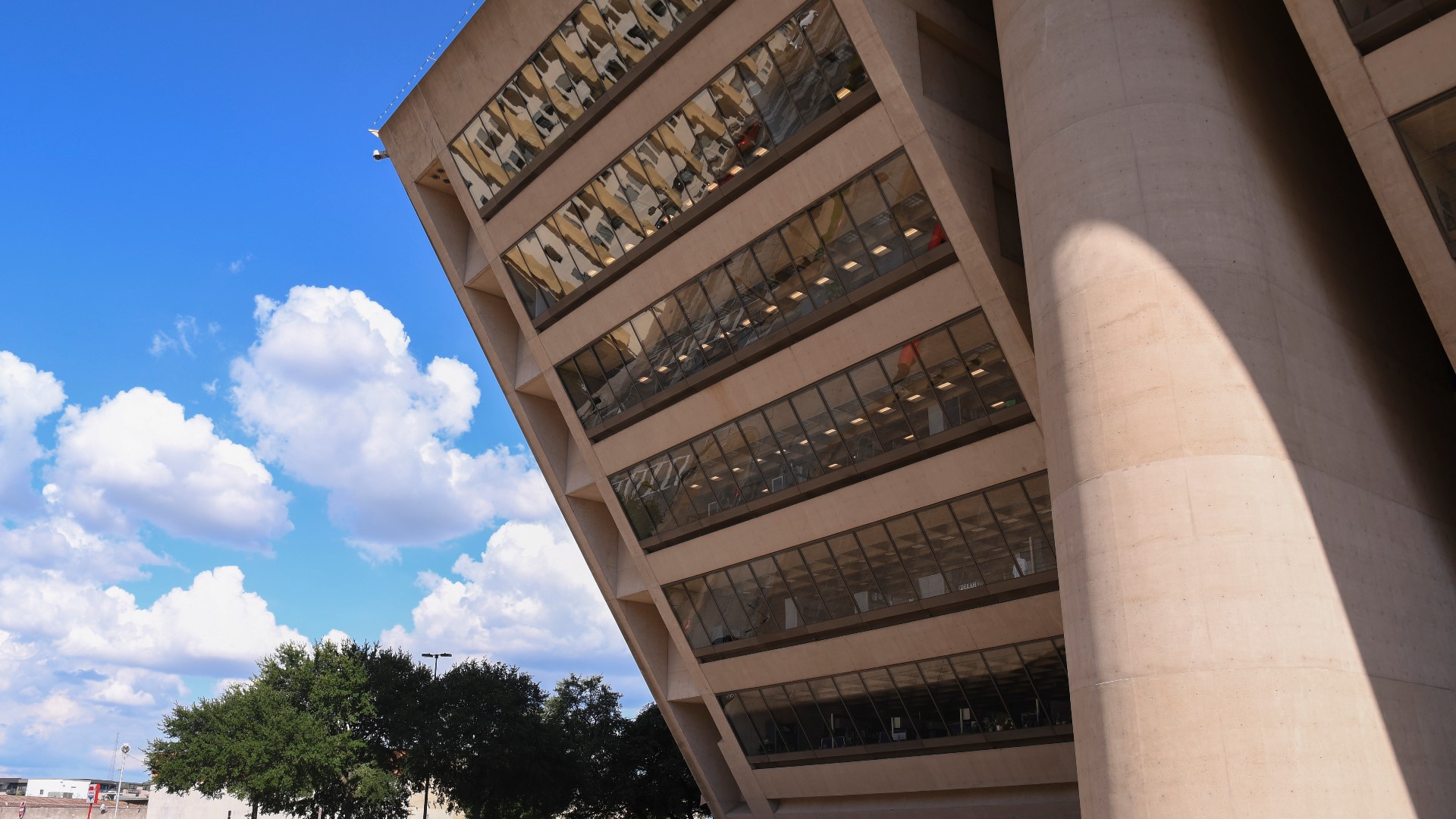DALLAS — Dallas voters decided Tuesday on a slate of 18 charter amendment proposals.
Dallas is required to consider changes to its charter, which defines how the city is governed. Once the city council votes on the proposed amendments, they’re put on a November ballot for voters to consider. Dallas began its charter review process last summer.
Attorney and former state Rep. Allen Vaught was named chair of the city’s charter review commission, which had 14 other members, including former city council member Adam Medrano serving as vice chair.
The 18 charter amendments included 14 from the city council and four from resident petitions.
Here’s what to know about each of the charter amendments and how Dallasites voted on them.
- Proposition A: Proposition A would allow the city to contribute additional funding to the city’s employees’ retirement fund, which is the pension fund for employees aside from police and firefighters, among other changes. Unofficial results showed a majority of Dallas County voters supported Proposition A.
- Proposition B: Proposition B would amend the Dallas city charter to add a preamble “that declares the city to be an equitable democracy, comprised of representatives that act to make the city fair, equitable, just and safe for all residents.” Early vote results showed a majority of Dallas County voters supported Proposition B.
- Proposition C: Proposition C would amend the Dallas city charter to increase the annual salary for the mayor to $110,000 (up from $80,000) and the annual salary for city council members to $90,000 (up from $60,000) with salaries subject to a yearly adjustment equal to the year-over-year percentage increase in the local consumer price index, effective January 1, 2025. Unofficial results showed a majority of Dallas County voters voted against this proposition.
- Proposition D: Proposition D would amend the city charter to delete the requirement that city council elections be held in May “and instead be held according to state law and as designated by city resolution or ordinance.” Unofficial results showed a majority of Dallas County voters supported Proposition D.
- Proposition E: Proposition E would amend the Dallas city charter to eliminate the ability for city council members to run again after serving the maximum four two-year terms and eliminate the ability for the mayor to run for mayor again after serving the maximum two four-year terms. Unofficial results showed a majority of Dallas voters supported Proposition E.
- Proposition F: Proposition F would amend portions of the city charter that require the city council to provide assistants to the city secretary and city auditor, to also require the city council to provide employees to the city secretary and city auditor. Unofficial results showed a majority of Dallas voters supported Proposition F.
- Proposition G: Proposition G would amend a section of the city charter to add eligibility criteria for serving on the city’s redistricting commission. Unofficial results showed a majority of Dallas voters supported Proposition G.
- Proposition H: Proposition H would amend portions of the city charter to eliminate the requirement that members of the redistricting commission, city plan commission, civil service board, and park and recreation be registered to vote, qualified voters or qualified taxpaying citizens. Unofficial results showed a slim majority of Dallas voters supported Proposition H.
- Proposition I: Proposition I would change the portion of the city charter that lays out procedures for initiative and referendum ordinances, to extend the deadline for petitioners to collect the required signatures from 60 days to 120 days and reduce the number of signatures required on a petition from 10% of the qualified Dallas voters to 5%. Unofficial results showed a slim majority of Dallas voters supported Proposition I.
- Proposition J: Proposition J would change the city charter to allow the city council’s appointments to city boards and commissions to be replaced by city council prior to the completion of a member’s two-year term. Unofficial results showed a majority of Dallas voters supported Proposition J.
- Proposition L: Proposition L would change the Dallas city charter to make the city’s Inspector General appointed by the city council and outline the duties of the Inspector General. Unofficial results showed a majority of Dallas voters supported Proposition L.
- Proposition O: Proposition O would amend the city charter to require associate municipal judges be residents of the city of Dallas within four months of the date of appointment and practicing attorneys in good standing, as well as clarify that associate municipal judges are appointed by the city council and receive assignments from the administrative judge or administrative judge’s designee. Unofficial results showed a strong majority of Dallas voters supported Proposition O.
- Proposition P: Proposition P would delete the requirement that a city employee who appeals their firing or demotion pay half of the costs associated with the appeal hearing. Unofficial results showed a majority of Dallas voters supported Proposition P.
- Proposition Q: Proposition Q involves a series of changes meant to align the city charter with city code or state law and better match what the city’s practices are now. Unofficial results showed a strong majority of Dallas voters supported Proposition Q.
- Proposition R: Proposition R, also known as the “Dallas Freedom Act” spearheaded by Ground Game Texas, is among the petition-driven amendments. Proposition R would amend the city charter to “prohibit the Dallas Police Department from making arrests or issuing citations for marijuana possession or considering the odor of marijuana as probable cause for search or seizure, except as part of a violent felony or high priority narcotics felony investigation” for those with four ounces or less of marijuana. Ground Game Texas shared that the proposition has received high-profile support from Willie Nelson. Earlier this year, though, Texas Attorney General Ken Paxton sued five cities, including Denton in North Texas, over ordinances to deprioritize misdemeanor marijuana enforcement. Unofficial results showed a strong majority of Dallas voters supported Proposition R.
- Proposition S: Proposition S is among the controversial amendments that made it on the ballot after the group Dallas HERO collected the required signatures. Proposition S would grant “standing to any resident of Dallas to bring a lawsuit against the city to require the city to comply with provisions of the city charter, city ordinances, and state law.” It would also waive the city’s governmental immunity from suit and liability in claims brought under the amendment. The Dallas HERO initiative received financial backing from hotelier, GOP donor and Dallas Express publisher Monty Bennett and a slate of current and former Dallas leaders and the Dallas Police Association and Dallas Firefighters Association have urged voters to vote against the HERO amendments S, T and U. Dallas HERO, though, has argued that the amendments are a means of holding Dallas officials accountable. Unofficial results showed a majority of voters supported Proposition S.
- Proposition T: Proposition T is among the controversial amendments that made it on the ballot after the group Dallas HERO collected the required signatures. Proposition T would require the city to conduct a city-commissioned community survey each year of a minimum of 1,400 Dallas residents that would result in either the city manager earning a performance-based pay raise or the city manager’s firing. The Dallas HERO initiative received financial backing from hotelier, GOP donor and Dallas Express publisher Monty Bennett and a slate of current and former Dallas leaders and the Dallas Police Association and Dallas Firefighters Association have urged voters to vote against the HERO amendments S, T and U. Dallas HERO, though, has argued that the amendments are a means of holding Dallas officials accountable. Unofficial results showed a majority of voters voted against Proposition T.
- Proposition U: Proposition U is among the controversial amendments that made it on the ballot after the group Dallas HERO collected the required signatures. Proposition U has two elements. One would earmark at least 50% of new revenue each year to fund the Dallas Police and Fire Pension. The other would require the city to maintain a force of at least 4,000 police officers and increase starting pay for officers. Among the most controversial of the three HERO amendments, current and former Dallas leaders and Dallas Police Association and Dallas Firefighters Association have argued the amendment takes away the city’s budget flexibility to address issues, among other things, while Dallas HERO argues it will improve public safety in the city. Unofficial results showed a slim majority of voters voted for Proposition U.



